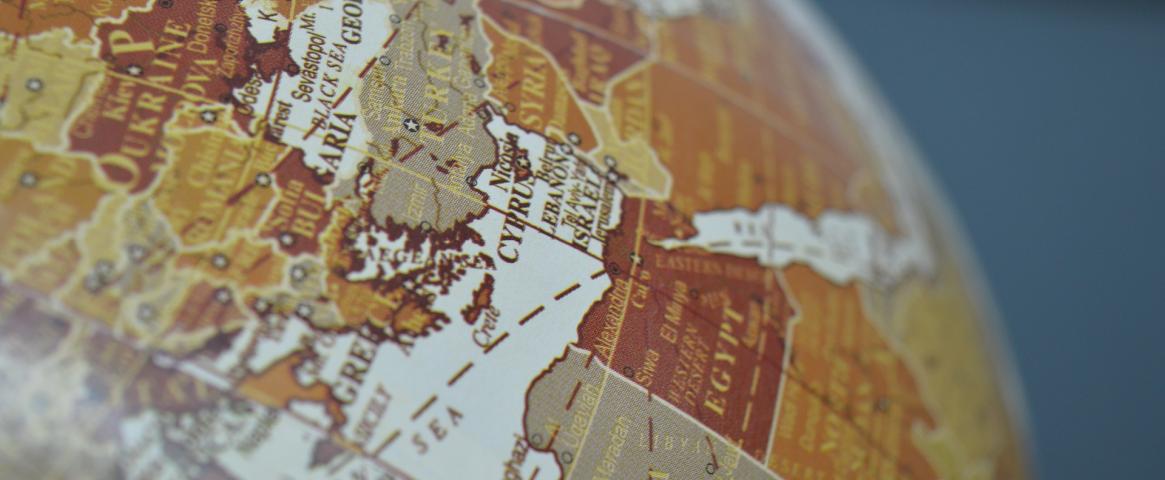By Robin Blades
French paleontologists claimed to discover a new species of Brazilian insect from the Cretaceous period last week. However, Juan Cisneros, a professor of natural science at the Universidade Federal do Piauí, notes that the article makes no mention of how the fossils arrived in France, any export permits that were acquired, or if Brazilian researchers were involved in the research.
In the ScienceWriters2021 conference plenary session on “Covering Science Responsibly Across Borders”, editors and writers from around the world discussed how to ethically report on science. Rodrigo Pérez Ortega, a science journalist from Mexico City, used the paleontology article as an example of scientific colonialism, where institutions and people in developing countries are robbed of their place in the acquisition of knowledge.
“It is our job as media people to try and push back,” says Pakinam Amer, a science journalist and former editor-in-chief of Nature Middle East, by including local voices and seeking the deeper narrative.
Include local voices
Many science writers may worry about being “parachute” journalists -- dropping into areas where they have little knowledge or experience and creating stories that are inaccurate or distorted. Priyanka Runwal, a science journalist who covers stories from all over the globe, suggests a solution: diligent research.
Runwal investigates historical background and talks with people on the ground before writing her stories in order to capture ground politics and realities. “I make a distinction between discovery and description,” says Runwal, because what to scientists may seem novel is sometimes already known locally. She allows her sources to guide the storytelling and makes sure to explain to them what personal information will be released in the article to ensure their safety.
“There is a way to include local voices and engage with them,” says Amer, “not just to have a token local voice, but to actually listen to what they have to say.” She has worked with many fixers -- local journalists who may act as a translator or guide in the area that should be credited in the byline -- to understand how science is experienced in the country of origin. She argues that the story will be more accurate and richer for it.
Seek the larger context
“Part of science journalism is trying to figure out exactly where the science starts and where the rest of the story begins,” says Ian Morse, a journalist at the Gecko Project. He recommends asking scientists where their research questions came from and whether they are valid in the eyes of the people they are researching. This type of political inquiry will reveal underlying power dynamics, turning a textbook science story into a representation of how science exists in the world and impacts real people.
“Science doesn’t operate in a vacuum,” says Morse, but some of the best stories expose the way it does operate. One article published in Science in 2018 examined the ethical failures of scientists researching physical adaptations in Indonesia’s Bajau people. This story uplifted local voices that had been ignored and recentered the narrative in the country of origin.
“If it’s not reported in a Western or English-speaking journal or newspaper,” says Amer, many reporters act as if “it hasn’t happened.” She recommends that science writers diversify their coverage by building networks with researchers in other countries and tracking their conversations over social media to see how science is being experienced by other perspectives.
Do the work
Covering science across borders is a lot of work. It may require extra time in another country or more money for a translator. Science writers may have to dig through the authors list for local voices, interview people in an unfamiliar language, or find big picture experts to contextualize research.
“There is so much tension between doing a good job and working fast to meet deadlines and earn money,” says Martin Enserink, an international news editor at Science magazine, but it’s worth it to create more equitable science narratives. Ask your editor for an extension or more resources if that is what it takes to get it right, he says.
And don’t let the fear of being a parachute journalist deter you from writing stories about other countries, Enserink says, because the worst outcome would be to not write them at all.
Robin Blades is a clinical researcher at the University of California, San Francisco. She is also a former Fulbright research scholar and Global Journalism fellow at the Dalla Lana School of Public Health. She writes about the nuances of science, health, and wellness. Email her at robinblades@gmail.com or visit her website at www.robinblades.com.
Hero image by ErikaWittlieb from Pixabay.




